In the digital age, science and technology, innovation and digital transformation have become key development drivers for every country. With a strong desire to rise up, Vietnam is also actively integrating into this trend, while seeking international cooperation opportunities for mutual development.
To promote this process, the Party and State issued Resolution 57, which General Secretary To Lam described as a "Resolution to liberate scientific thinking", paving the way for bold breakthroughs. However, the path from policy to practice is always full of challenges and requires the cooperation of the international community.
To effectively implement Resolution 57, we need to strengthen international cooperation, together "standing on the shoulders of giants" - learning, sharing and applying technological achievements and experiences of advanced countries - while maximizing our own internal strength and creative potential.
Dan Tri newspaper reporter had a talk with Mr. Olivier Brochet, Ambassador Extraordinary and Plenipotentiary of France to Vietnam to listen to his sharing about the potential to expand cooperation in training, research and technology transfer to promote innovation, science and technology and sustainable development of Vietnam.
- First, I think the most important factor is political determination. This is clearly shown in Resolution 57 of the Vietnamese Politburo, with the goal of increasing the budget ratio for research and development from the current level of 0.57% of GDP to 2% of GDP in the coming time.
This not only demonstrates determination but also shows the resources Vietnam devotes to scientific and technological research and development, while helping Vietnam create a clear mark and demonstrate a strong commitment, thereby attracting attention and promoting cooperation from international partners.
Second, not only France but also the international community in general recognizes Vietnam's determination to innovate and improve the legal framework, as well as adjust the rules to create more favorable conditions for foreign experts to come and work in Vietnam.
Besides, Vietnam is also taking strong actions to implement projects with foreign elements and creating a favorable environment for cooperation with international partners.
This is an important condition to promote international cooperation. We highly appreciate Vietnam's determination and support this will.
- To strengthen international cooperation in the field of science and technology between Vietnam and foreign partners, to serve the country's development process, I think it is necessary to note the following important points:
First, Vietnam needs to ensure that all issues related to intellectual property rights are strictly protected.
Second, it is necessary to facilitate cooperation between the public and private sectors, to promote connections between State agencies and research and development partners.
Third, Vietnam needs to encourage students more strongly to pursue higher education in science and technology, instead of just stopping at the bachelor's level.
Because currently, 90-95% of students after graduating from university choose to go to work immediately. This is a certain barrier to the development of science and technology in Vietnam.
- France has all the strengths from research, training to technology transfer and application for scientific, technological and economic development activities.
In this aspect, your country identifies key areas to focus on development and the French side is ready to support through universities, research institutes, startups and businesses in France... all of which have products and programs that can propose cooperation with Vietnam.
Furthermore, Vietnam is implementing many large projects, including projects applying new technologies such as artificial intelligence and semiconductors, and France is ready to accompany Vietnam in those projects.
For example, in the energy sector, France wishes to cooperate with Vietnam to ensure energy sources to serve Vietnam's economic development and growth, while helping Vietnam achieve its international commitment to become carbon neutral by 2050.
In this field, especially nuclear power, France has great strengths. This is an innovative and groundbreaking field and we have much to share with your country.
- We have made proposals expressing our desire to cooperate with the Vietnamese Government regarding energy technology, which France possesses at the highest level in the world.
We are committed to the projects we can implement ensuring safety - an extremely important factor - while also ensuring high performance and economic efficiency.
If the two countries can cooperate in the field of nuclear power, this project will create a major turning point in bilateral relations.
Because when implementing the project, Vietnam requires accompanying large-scale programs, training thousands of engineers and students in this field to meet the demand. At the same time, Vietnam needs to form a chain including accompanying supporting industries to ensure the smooth operation of the entire power plant system.
The second area of potential breakthrough innovation in both economic and technological terms that France wishes to cooperate with Vietnam on is the North-South high-speed railway project. This is a project that, when implemented, will create a leap forward in the development of your country.
We believe that Vietnam can absolutely make this leap, but only if it has a strong international partner to cooperate with.
France's proposal to cooperate with Vietnam in this field of high-speed railway development is based on the model that France recently cooperated with Morocco.
Not only did we help Morocco build its first high-speed railway, but we are now supporting the construction of a second one.
What is important in this cooperation is that we have had active cooperation in the field of training and technology transfer, to ensure that the Moroccan side can master and then independently operate its high-speed rail system.
This is what France wants to share with Vietnam.
We emphasize that high-speed rail requires very complex technologies. Therefore, to be able to transfer successfully is a story of great pride.
In addition, France also wishes to cooperate in many other fields such as in health, in addition to the traditional cooperation we already have.
Based on the presence of three Pasteur Institutes in Vietnam and the presence of many French enterprises in Vietnam, we can absolutely consider cooperation to develop this field.
This is also an area of innovation and breakthrough, for example in the production of vaccines or pharmaceuticals in Vietnam. It is not simply about having products to sell on the market, but through the cooperation process, we can also improve the capacity of Vietnamese partners in this technology field.
- We have a unit called Campus France, which specializes in guiding and promoting studying in France, and at the same time supporting French university training projects in Vietnam.
In the coming time, we are ready to expand training for more Vietnamese youth in French educational programs.
It must be added that France not only wants to train engineers or technicians who can take on professional work, but also expects them to become people with vision for science and technology.
These people need to be able to pose scientific and technological development problems, as well as lead and manage research groups in this field.
Another aspect is that France has a capacity building center that helps businesses improve their competitiveness in the market.
We currently have 55 units operating under this model, each focusing on a specific area such as healthcare or technology.
This is not only a place that gathers university training facilities but also includes research institutes, startups and application development companies.
On that basis, we can facilitate information sharing between different stages, from training, research to application and development in the business chain, helping to improve the competitiveness of companies in the market.
I think there is a big similarity between Vietnam and France, which is the role of the State in developing science and technology. Not only does it stop at creating a favorable environment, the State also needs to directly invest in a number of key areas to promote development.
For example, in the spirit of the Artificial Intelligence (AI) Summit held in Paris in February, French President Emmanuel Macron announced a 109 million euro investment program dedicated to the AI sector.
Through thinking about this new stage of development in bilateral relations, we hope to take advantage of that momentum to create a highlight, a strong momentum of development in the cooperative relationship between the two countries.
In the near future, in Vietnam, France will launch a project called "French Year of Innovation in Vietnam", in collaboration with the National Innovation Center (NIC) with the desire to cooperate in all areas of development, in order to promote this spirit of extensive cooperation.
- The important thing is who the "giant" is. If it is a giant that always threatens and can crush you, then I think that is a risk, not an opportunity.
If that person is willing to accompany, support and transfer technology to improve capacity, then clearly it is not only a necessary cooperation but also indispensable.
That is why, in all the areas of breakthrough innovation that we have mentioned today, for example in the fields of energy, railways, health care, the French approach is not to set costs or prices as a commercial contract, but to want to transfer.
France is willing to mobilize the entire ecosystem, businesses and research units to participate in the training process with Vietnam on a long-term basis. In which, the Vietnamese State and the French Government coordinate to ensure that the cooperation is balanced and long-term for the partnership between the two countries.
- We closely follow the decisions of the Vietnamese Government, especially the policies made by General Secretary To Lam. I think he is the one who directly directs this direction and considers this to be a correct decision.
We would like to share that, in the bilateral relationship with Vietnam, over the past 30 years, we have maintained a close cooperative relationship in the fields of training and research.
This is clearly demonstrated by the fact that tens of thousands of Vietnamese students have been trained over the past time at leading universities and research institutes in France.
In addition, about 3,000 Vietnamese doctors have been trained in France. After completing the program, they returned home and took on important positions in Vietnam's health system.
In the current period, when Vietnam promotes training of science and technology human resources among the youth, France is always ready to accompany Vietnam. This desire is completely well-founded, because France is one of the powers in scientific research - something that perhaps not many young Vietnamese people really grasp.
People may not know that the French National Center for Scientific Research is the unit with the largest number of international research publications in the world, with 60% of the research here co-authored by international scientists, not just French researchers.
In addition, the French School of Mathematics is also considered one of the leading schools in the world. France is also the second country in terms of the number of citizens who have won the Fields Medal - including Professor Ngo Bao Chau.
Professor Ngo Bao Chau studied in France thanks to a scholarship from the French Government and the work that helped him win the Fields Prize was also researched in France.
In terms of the number of Nobel Prizes, France also ranks 4th in the world. It can be said that every 2-3 years, a French scientist or a research group with the participation of French scientists is honored with a Nobel Prize in a certain field.
In the field of applied science and technology, France is the second country in the world in terms of the number of patents. This proves that France has a complete and effective ecosystem, from training, research to application.
With this strength, France is ready to research, accompany and share with Vietnam in the process of developing science and technology in the coming time.
In the fields of health, agriculture and food processing, we have had long-standing cooperative relations. In the field of transportation, the two sides have also cooperated closely, especially in the aviation industry.
However, in the coming time, we hope to expand our cooperation to the railway sector, as this is one of the fields in which we are leading. In particular, Vietnam will implement a number of important projects, especially the high-speed railway project.
There are also other cooperations such as space research, energy, especially Vietnam's nuclear power plant plan, which we also have strengths and desire to cooperate.
Besides, in other fields such as artificial intelligence (AI), we also possess strengths and wish to share and accompany Vietnam in developing these advanced technologies.
- I would like to emphasize a special aspect in the bilateral relationship between France and Vietnam, which is the extremely favorable environment and conditions for promoting scientific cooperation between the two countries.
First of all, we have a close relationship between the French and the Vietnamese. Notably, many young Vietnamese people have gone to France to study and after returning home, they have built cooperative relationships with French partners.
In addition, there are also many French officials working in Vietnam. This is a very favorable environment to promote training and research cooperation between the two countries.
In particular, in Vietnam, there are currently 3 outstanding training projects in cooperation with France. Specifically, they are the Hanoi University of Science and Technology, the high-quality engineering training program and the French-Vietnamese Management Training Center.
In addition, we also have many French research units with offices and facilities in Vietnam, typically the Institute for Development Research IRD, the International Research Center for Agricultural Development CIRAD or the 3 Pasteur Institutes in Vietnam, which are part of the system of French Pasteur Institutes worldwide, and have had many important research and cooperation projects with Vietnam in many fields.
Thank you Ambassador for taking the time for this conversation!
Content: Doan Trung Nam
Photo: Quyet Thang
Design: Huy Pham
04/21/2025 - 07:06
Source: https://dantri.com.vn/cong-nghe/dai-su-phap-san-sang-huy-dong-ca-he-sinh-thai-giup-viet-nam-dot-pha-20250409192354486.htm




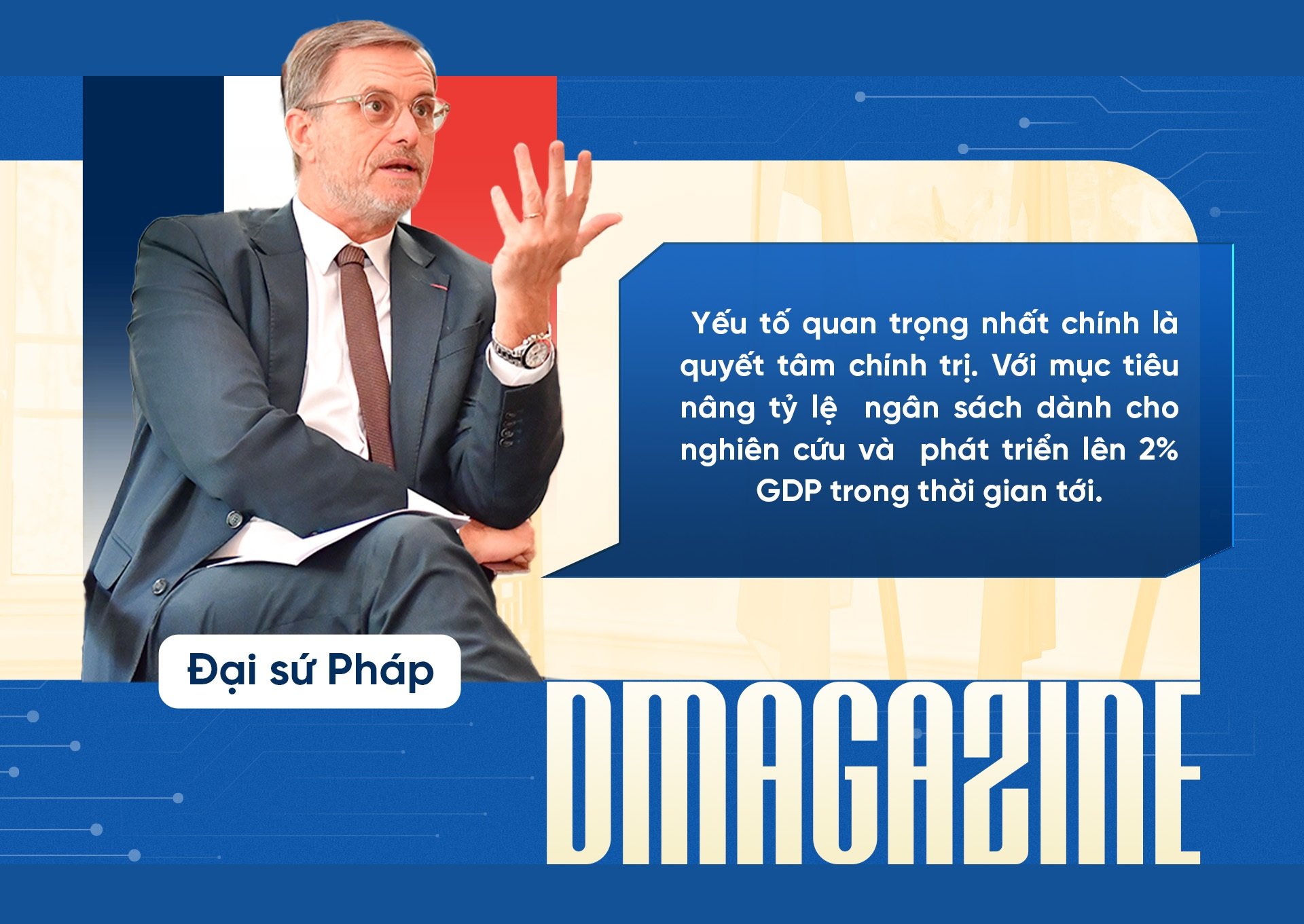

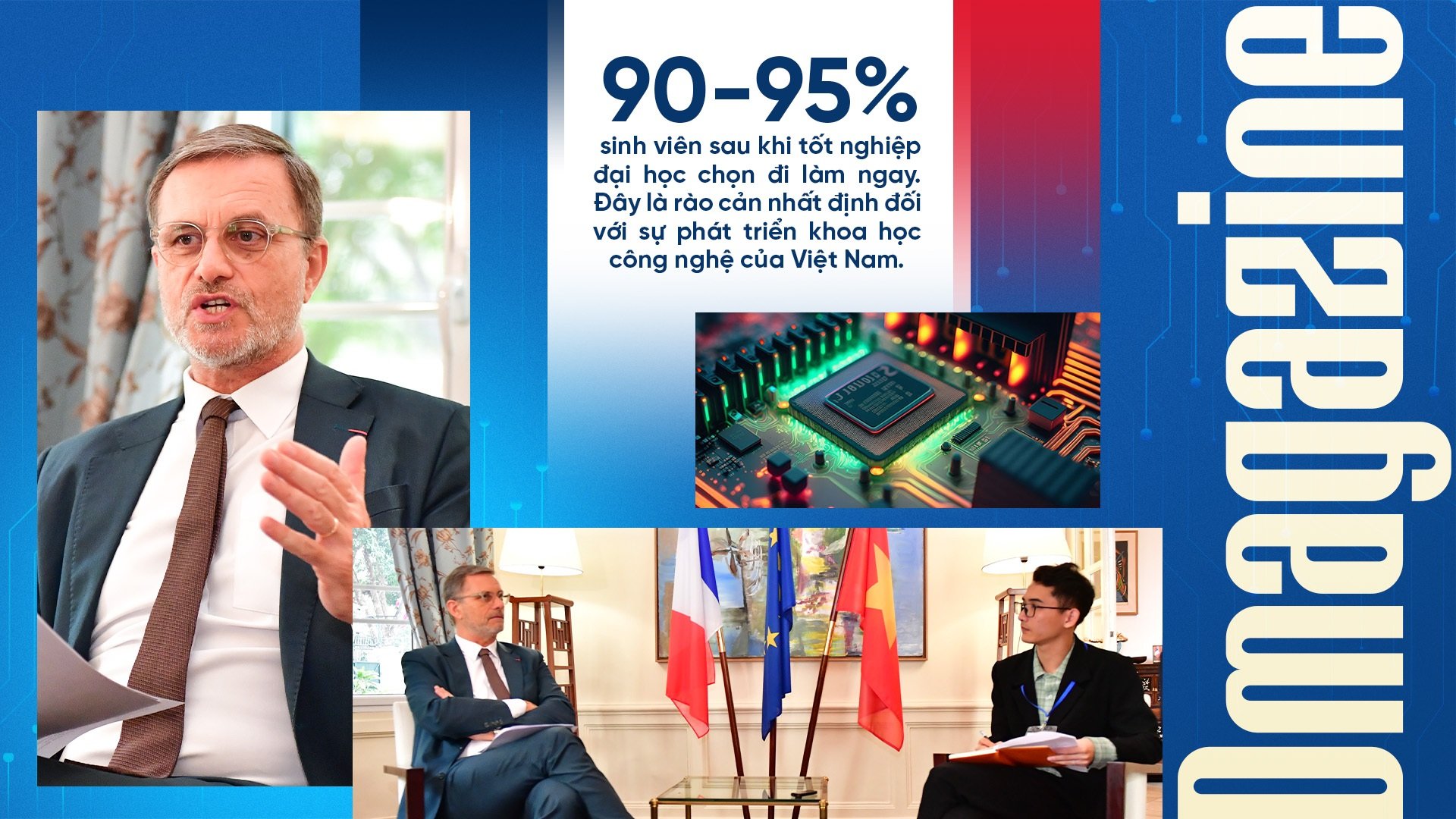


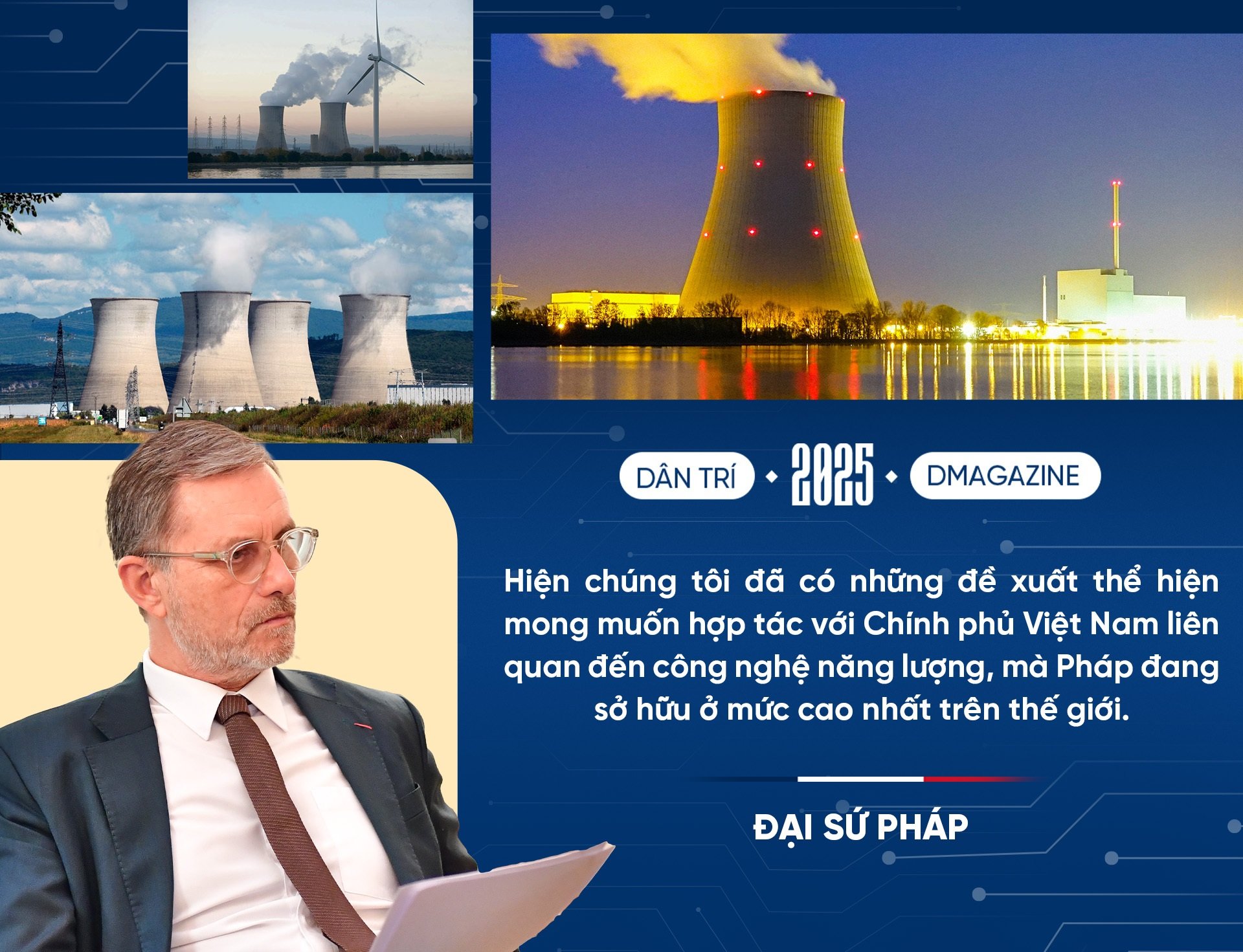
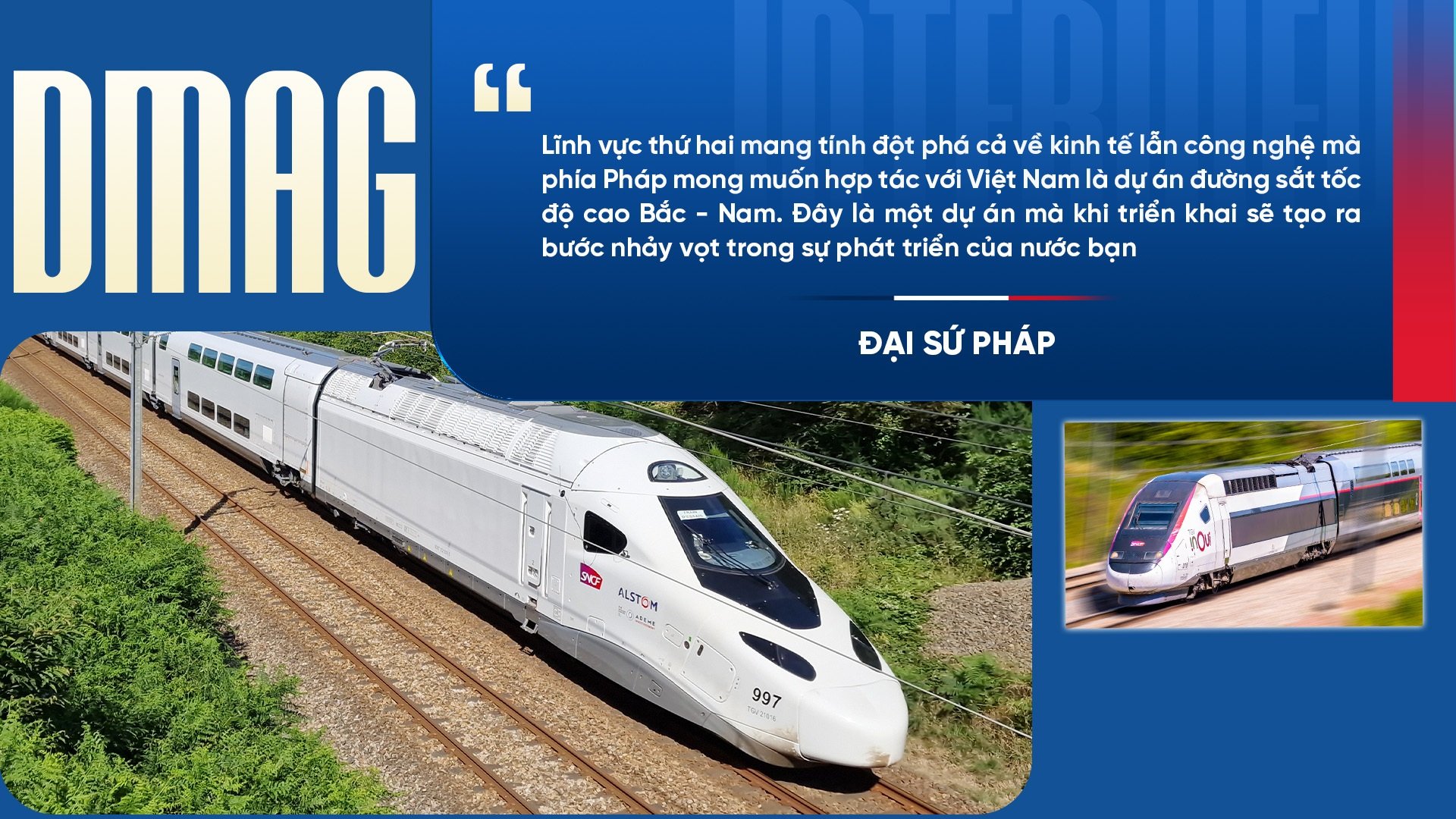


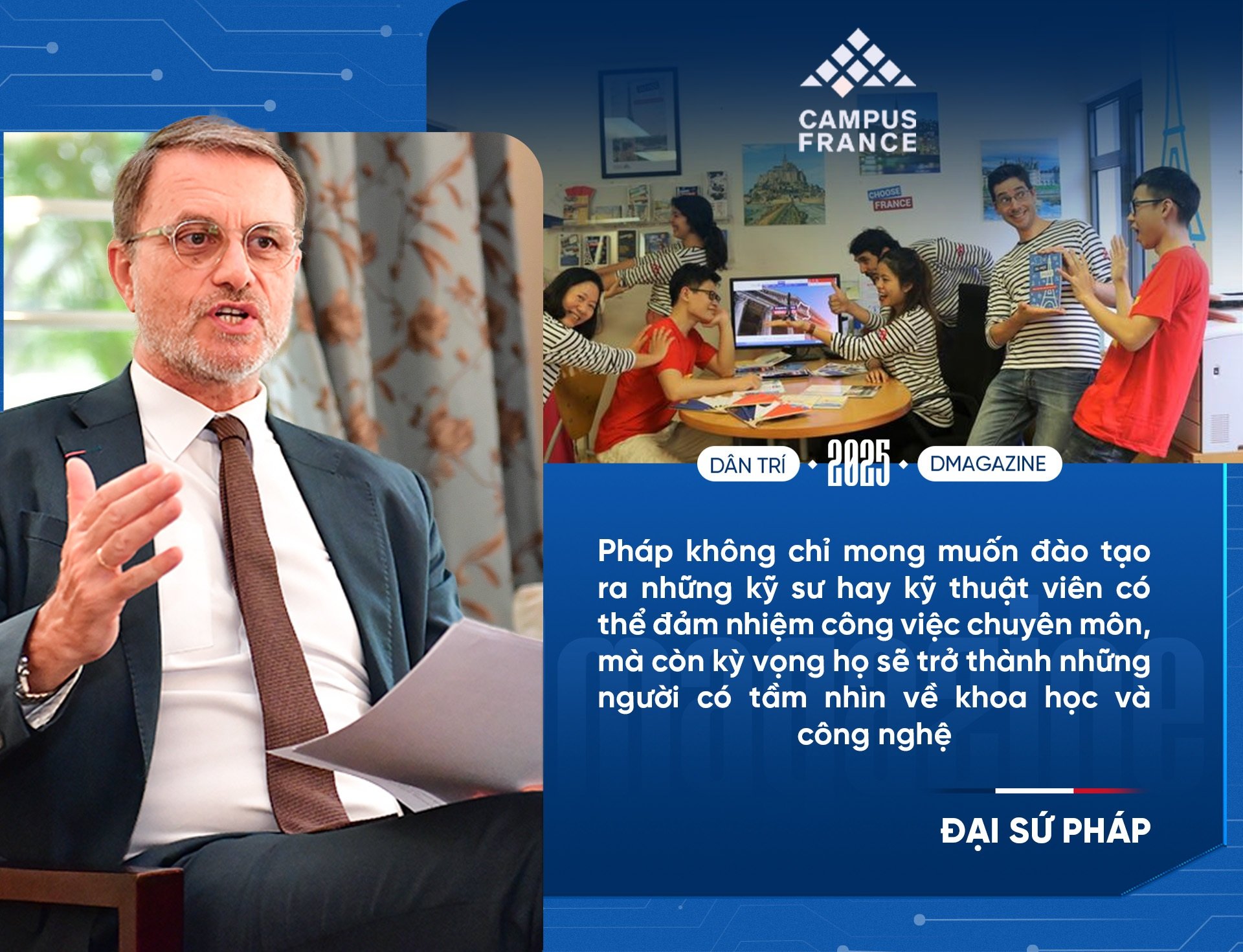
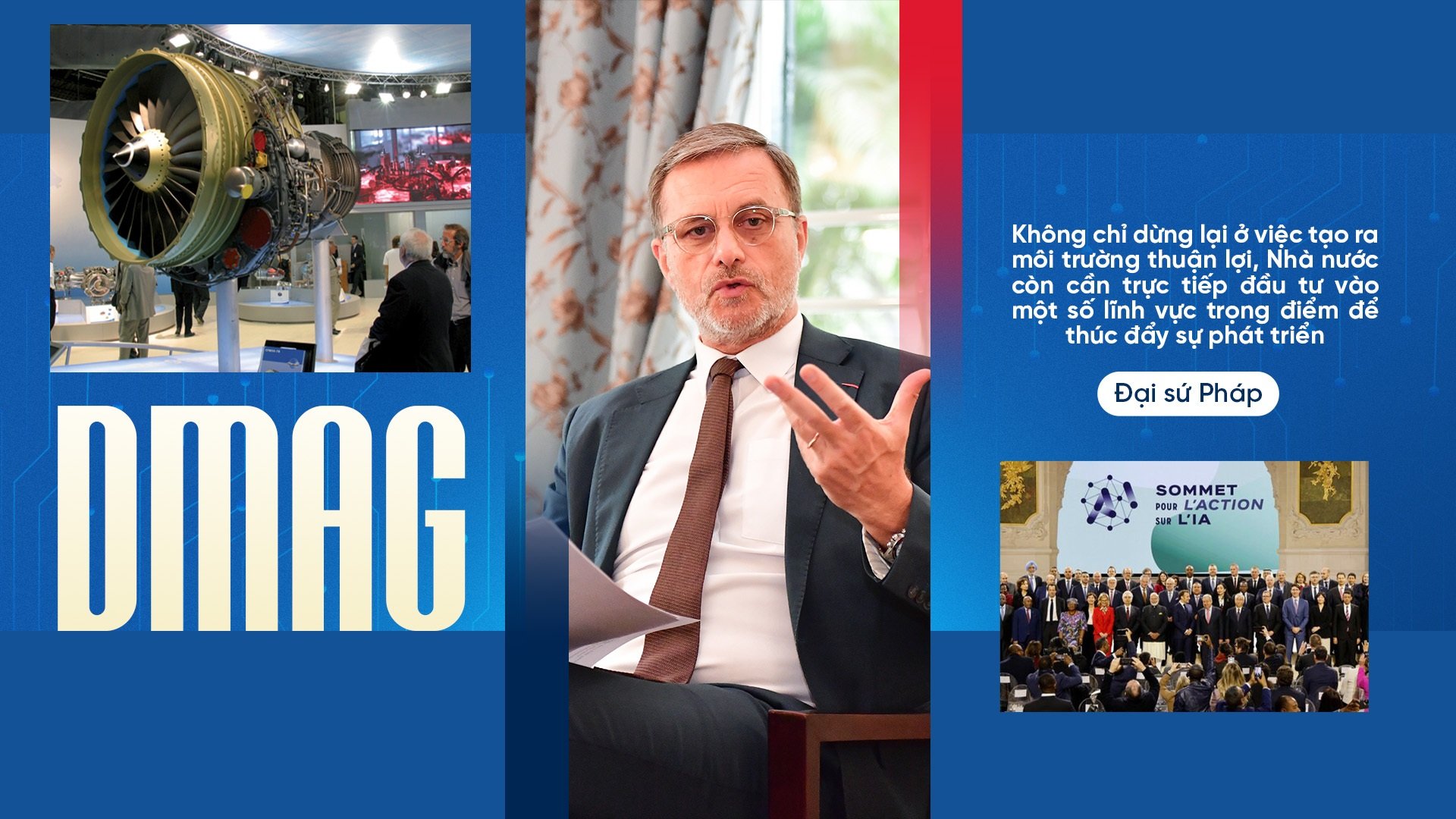


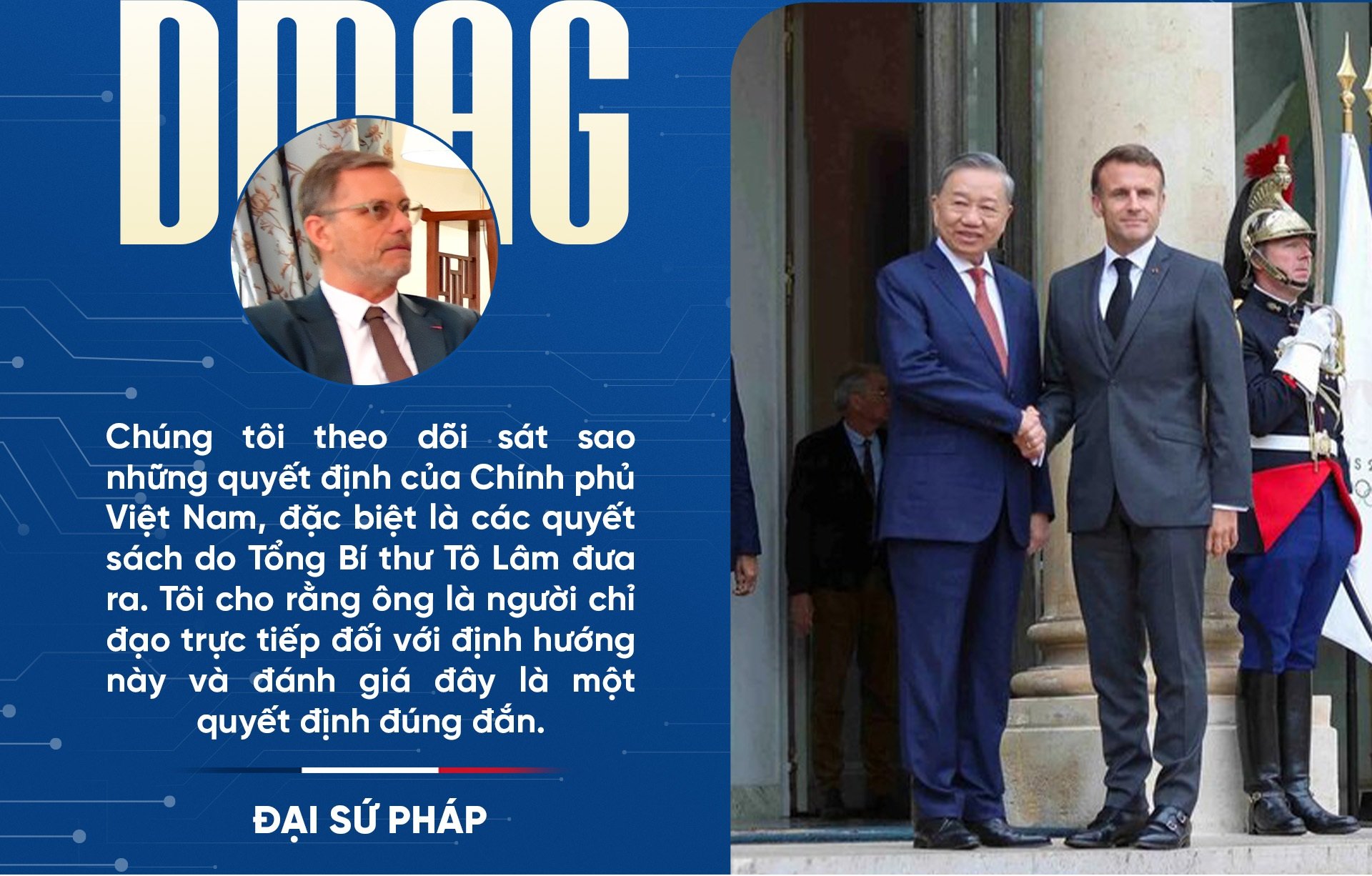
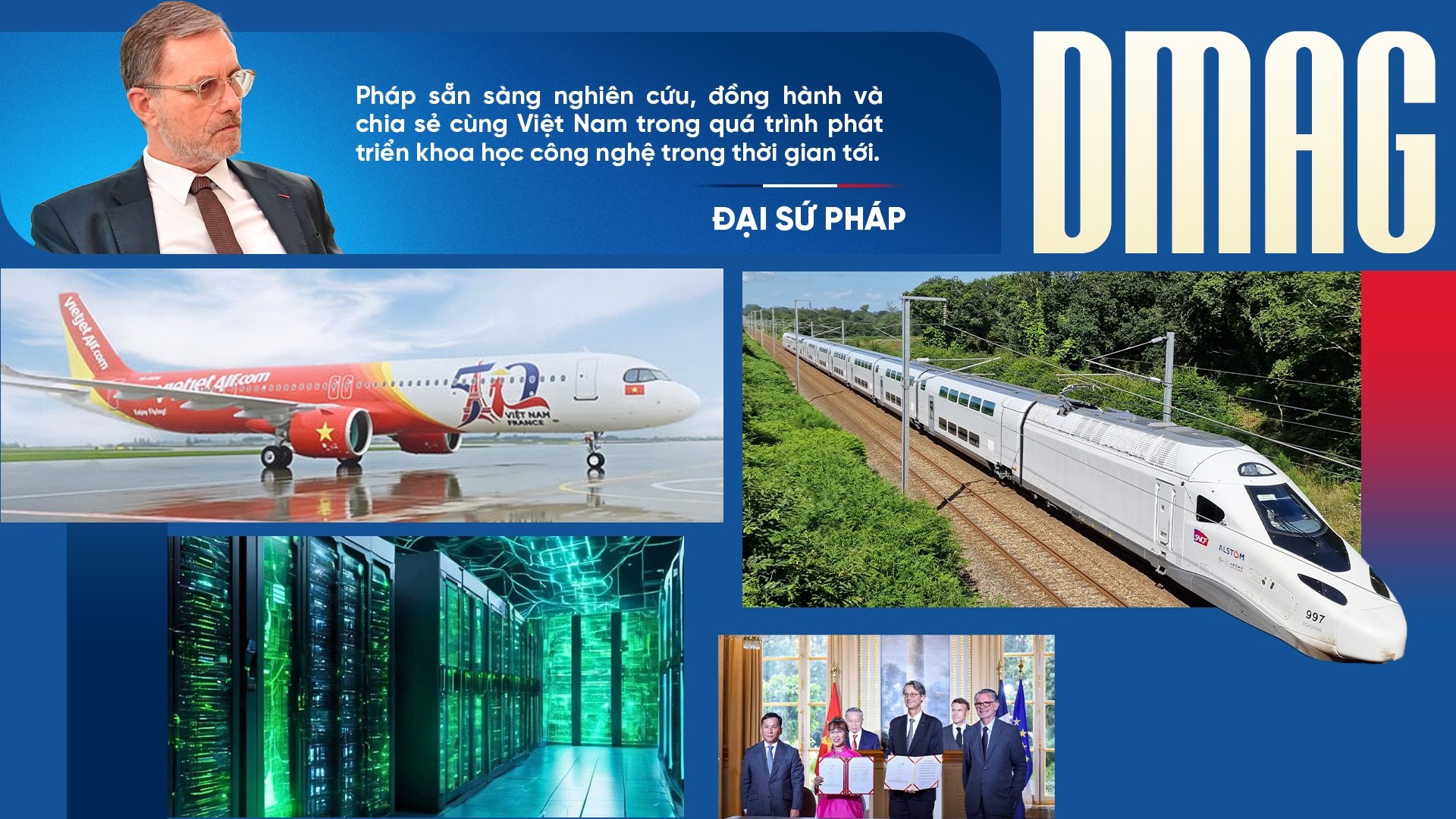

![[Photo] Party and State leaders attend the special art program "You are Ho Chi Minh"](https://vphoto.vietnam.vn/thumb/1200x675/vietnam/resource/IMAGE/2025/5/18/6895913f94fd4c51aa4564ab14c3f250)

![[Photo] Ready for the top competitions of Vietnamese table tennis](https://vphoto.vietnam.vn/thumb/1200x675/vietnam/resource/IMAGE/2025/5/18/9c547c497c5a4ade8f98c8e7d44f5a41)

![[Photo] Many young people patiently lined up under the hot sun to receive a special supplement from Nhan Dan Newspaper.](https://vphoto.vietnam.vn/thumb/1200x675/vietnam/resource/IMAGE/2025/5/18/6f19d322f9364f0ebb6fbfe9377842d3)

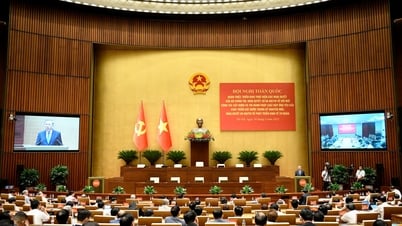

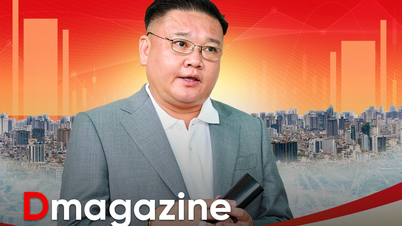





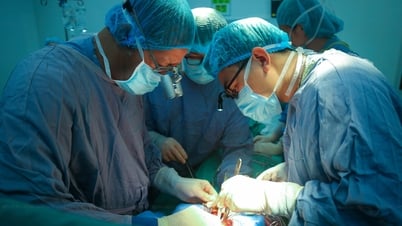




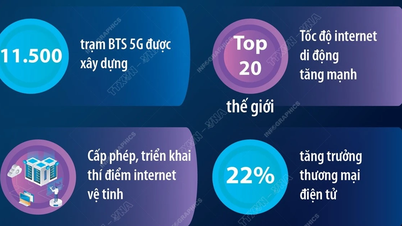

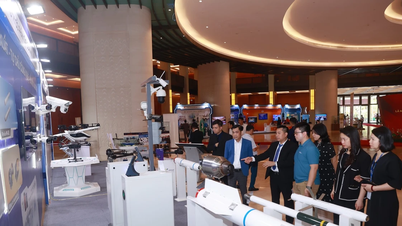
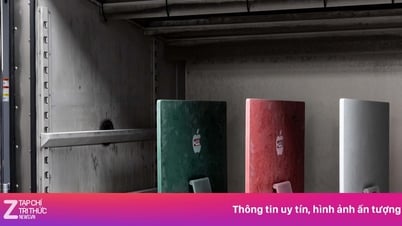
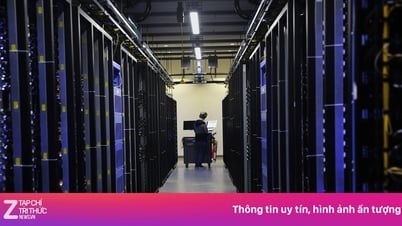









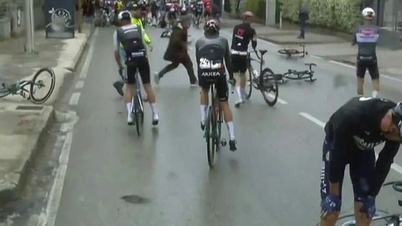













































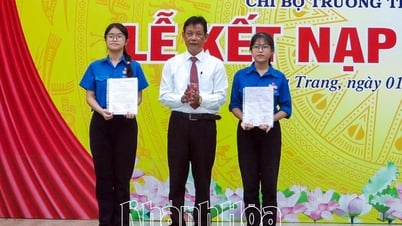

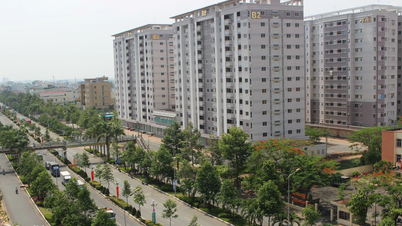

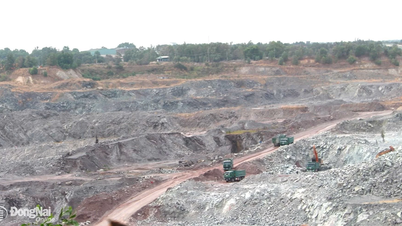
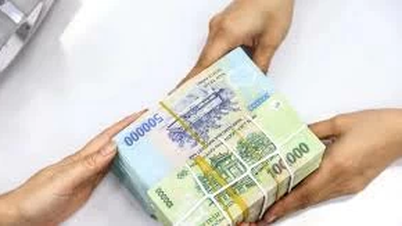
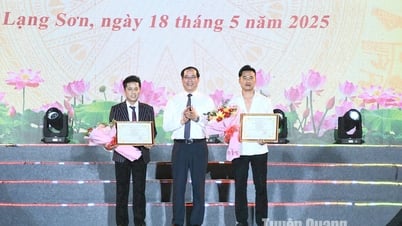

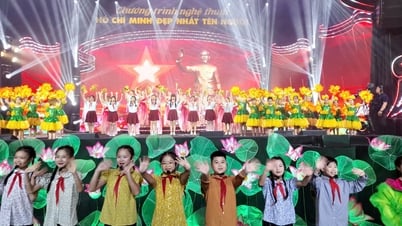











Comment (0)